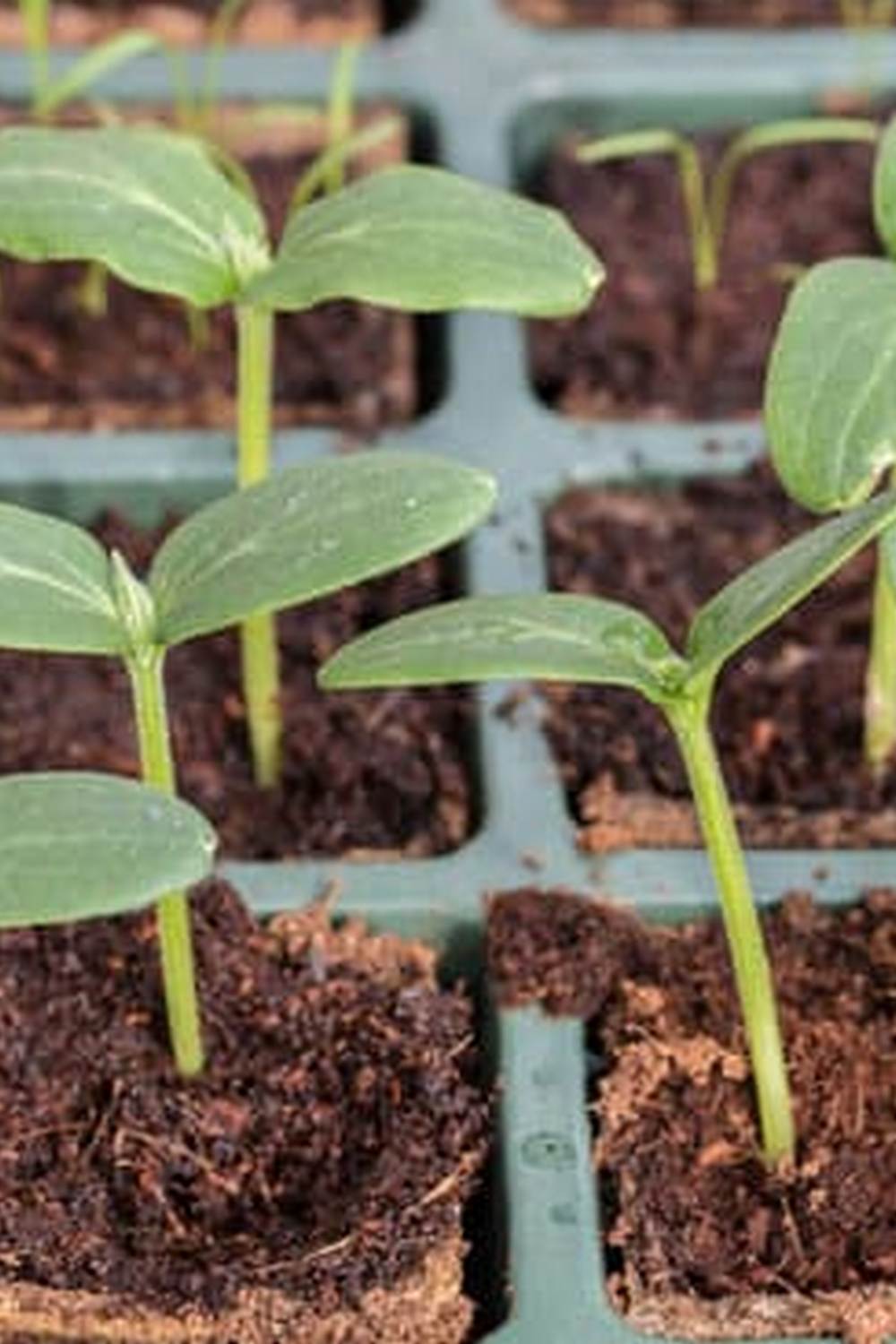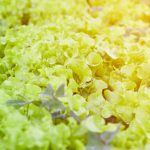Alfalfa pellets for vegetable gardening have gained popularity among gardeners for their numerous benefits and nutritional value. These pellets, derived from alfalfa plants, are rich in vitamins and minerals that can enhance the growth and health of vegetable plants. In this article, we will explore the various advantages of using alfalfa pellets in your vegetable garden and provide a step-by-step guide on how to effectively incorporate them into your gardening routine.
One of the key benefits of using alfalfa pellets in vegetable gardening is their high nutritional value. Alfalfa contains essential vitamins and minerals such as nitrogen, phosphorus, potassium, and calcium, all of which are crucial for the healthy growth of plants. Additionally, alfalfa pellets act as a slow-release fertilizer, providing a consistent source of nutrients to the soil over time.
In addition to their nutritional value, alfalfa pellets can also improve soil health. They help increase the nutrient content of the soil and improve its structure, promoting better water retention and drainage. This ultimately creates a healthier environment for vegetable plants to thrive. Stay tuned as we delve deeper into the specific ways in which alfalfa pellets can benefit your vegetable garden and provide real-life success stories from fellow gardeners who have experienced positive results with their use.
The Nutritional Value of Alfalfa Pellets for Vegetable Plants
Considered a Superfood for Plants
Alfalfa pellets are known for their high nutritional value, making them an excellent choice for vegetable gardening. The pellets contain a variety of essential vitamins and minerals that are beneficial for the growth and development of vegetable plants. These include nitrogen, phosphorus, potassium, calcium, magnesium, sulfur, and various trace elements. Additionally, alfalfa pellets also contain vitamins A, B, C, E, and K which are crucial for the overall health and productivity of vegetable plants.
Improving Soil Fertility and Plant Growth
The nutrients present in alfalfa pellets play a vital role in enhancing soil fertility and promoting healthy plant growth. Nitrogen aids in the formation of proteins and chlorophyll, which is essential for the development of strong stems and lush foliage. Phosphorus supports root development and improves flowering and fruiting.
Meanwhile, potassium helps regulate water uptake and nutrient transport within the plant. Furthermore, calcium promotes cell wall strength while magnesium is a component of chlorophyll. By incorporating alfalfa pellets into the soil, gardeners can ensure that their vegetable plants receive a comprehensive range of important nutrients.
Organic Matter Contribution
In addition to the essential nutrients it provides, alfalfa pellets also contribute organic matter to the soil as they decompose over time. This organic matter improves soil structure by increasing its ability to retain moisture and nutrients while also promoting beneficial microbial activity.
The presence of organic matter also helps prevent soil erosion and compaction, creating an environment that is conducive to healthy root development and optimal plant growth. With its combination of essential nutrients and organic matter contribution, alfalfa pellets play a significant role in maintaining overall soil health in vegetable gardens.
How to Use Alfalfa Pellets in Your Vegetable Garden
Using alfalfa pellets in your vegetable garden is a great way to provide essential nutrients to your plants. Here is a step-by-step guide for the application of alfalfa pellets in your vegetable garden:
1. Preparation: Begin by preparing the soil in your vegetable garden. Remove any weeds and loosen the soil to ensure that it is ready to receive the alfalfa pellets.
2. Application: Spread the alfalfa pellets evenly over the soil in your vegetable garden. Use a rake or shovel to work the pellets into the top few inches of soil. The recommended application rate is 2-3 pounds of alfalfa pellets per 100 square feet of garden space.
3. Watering: After applying the alfalfa pellets, water your vegetable garden thoroughly. This will help to activate the beneficial nutrients in the pellets and ensure that they are available to your plants.
Using alfalfa pellets in your vegetable garden can provide numerous benefits such as improved soil structure, increased nutrient content, and overall healthier plants. By following this step-by-step guide for application, you can make the most of these benefits and help your vegetable garden thrive.
| Benefit | Description |
|---|---|
| Improved Soil Structure | Alfalfa pellets help improve soil structure, making it easier for plants to spread their roots and access necessary nutrients. |
| Increased Nutrient Content | The vitamins and minerals present in alfalfa pellets enrich the soil, providing essential nutrients for healthy plant growth. |
| Overall Healthier Plants | The use of alfalfa pellets can lead to stronger and more resilient vegetable plants, resulting in higher yield and better quality produce. |
The Impact of Alfalfa Pellets on Soil Health
When it comes to vegetable gardening, the health of the soil plays a critical role in the success of your plants. This is where alfalfa pellets come into play, as they have a significant impact on soil health by improving nutrient content and soil structure.
Alfalfa pellets are rich in nitrogen, phosphorus, potassium, and other essential minerals, making them an excellent natural fertilizer for vegetable plants. When incorporated into the soil, these nutrients work to nourish the plants and promote healthy growth. In addition to their nutritional value, alfalfa pellets also act as a soil conditioner, helping to improve soil structure by enhancing its ability to retain moisture and nutrients.
In terms of nutrient content, alfalfa pellets provide a slow-release source of nitrogen, which is essential for promoting leafy green growth in vegetable plants. They also contain valuable organic matter that helps enhance microbial activity in the soil, further improving its overall health.
| Benefit | Impact on Soil Health |
|---|---|
| Nutrient Content | Improves overall nutrient levels in the soil, promoting healthy plant growth |
| Soil Structure | Enhances soil’s ability to retain moisture and nutrients, creating a healthier growing environment |
The presence of alfalfa pellets also encourages earthworm activity in the soil, which aids in aerating the earth and improving its texture. All of these factors combined contribute to better overall soil health and create an ideal environment for growing strong and healthy vegetable plants.
In summary, using alfalfa pellets for vegetable gardening not only provides essential nutrients for plant growth but also contributes to enhanced soil structure and fertility. Whether you’re dealing with compacted or depleted soil in your garden beds, incorporating alfalfa pellets can make a significant difference in improving the overall health of your garden’s growing medium.
Best Vegetable Plants to Use Alfalfa Pellets With
When it comes to using alfalfa pellets for vegetable gardening, certain plants can benefit more from this natural fertilizer than others. Understanding which vegetable plants can thrive with the use of alfalfa pellets is crucial for achieving optimal results in your garden.
Tomatoes
Tomatoes are known to respond positively to the use of alfalfa pellets due to their high nutrient requirements. The slow release of nitrogen from the alfalfa pellets provides a steady supply of nutrition for the tomato plants, resulting in healthier foliage and increased fruit production.
Peppers
Like tomatoes, peppers also require ample nutrients to produce abundant and flavorful fruits. Alfalfa pellets provide a balanced mix of nitrogen, phosphorus, and potassium, which are essential for promoting strong root development and overall plant growth in pepper plants.
Squash and Zucchini
Squash and zucchini plants are heavy feeders that benefit from the nutrients found in alfalfa pellets. The high content of trace minerals in alfalfa pellets supports healthy fruit development and enhances the flavor and nutritional value of these popular vegetables.
By incorporating alfalfa pellets into your vegetable garden, you can expect to see significant improvements in the growth, yield, and quality of these recommended plants. Whether it’s tomatoes, peppers, or squash, integrating alfalfa pellets with these vegetables can help you achieve optimal results in your garden.
Comparison With Other Fertilizers
When it comes to fertilizing your vegetable garden, there are numerous options available, from synthetic chemicals to natural and organic alternatives. One natural option that stands out for its many benefits is alfalfa pellets. Here’s how they compare with other fertilizers and why they stand out for vegetable gardening:
Benefits of Alfalfa Pellets
- Rich in nutrients: Alfalfa pellets are packed with nitrogen, phosphorus, potassium, and various other essential nutrients that are beneficial for vegetable plants.
- Improves soil structure: Unlike synthetic fertilizers that can degrade soil over time, alfalfa pellets help improve the overall soil structure and promote better water retention.
- Natural source of growth hormones: Alfalfa pellets contain natural growth hormones such as triacontanol, which can stimulate plant growth and development.
Comparison With Synthetic Fertilizers
When compared to synthetic fertilizers, alfalfa pellets have several advantages. While synthetic fertilizers may provide a quick boost of nutrients to the plants, they do not contribute to long-term soil health. In contrast, alfalfa pellets release nutrients slowly over time, providing sustained nourishment for vegetable plants while also benefiting the overall soil ecosystem.
Comparison With Other Organic Fertilizers
While other organic fertilizers such as compost and manure are beneficial for vegetable gardening, alfalfa pellets offer a more concentrated form of nutrients. Additionally, the compact nature of alfalfa pellets makes them easier to handle and distribute in the garden compared to bulkier organic materials.
In summary, when comparing alfalfa pellets with other fertilizers for vegetable gardening, their nutrient-rich composition, soil-improving properties, and sustainable benefits make them a standout choice for promoting healthy and robust vegetable plants.
Tips for Sourcing and Storing Alfalfa Pellets
Alfalfa pellets are becoming increasingly popular among vegetable gardeners due to their numerous benefits for plant growth and soil health. When sourcing and storing alfalfa pellets, it is essential to ensure the quality and longevity of the product to maximize its effectiveness in your garden.
When looking for alfalfa pellets for vegetable gardening, it is important to consider the source of the product. Look for reputable suppliers that offer high-quality alfalfa pellets without any additives or fillers. Organic alfalfa pellets are also available and can provide additional benefits for your vegetable garden.
Storing alfalfa pellets properly is crucial to maintain their nutrient content and effectiveness. It is recommended to store them in a cool, dry place such as a shed or garage, away from direct sunlight and moisture. Proper storage will prevent the pellets from degrading and ensure that they retain their nutritional value until you are ready to use them in your vegetable garden.
By carefully sourcing and storing alfalfa pellets, you can guarantee the quality and longevity of this beneficial fertilizer for your vegetable plants. Whether purchasing from a local supplier or ordering online, be sure to follow these tips to make the most of alfalfa pellets in your garden for optimal plant growth and soil health.
Success Stories
Many gardeners have experienced tremendous success using alfalfa pellets for their vegetable gardens. The versatility and effectiveness of these natural fertilizers have contributed to the thriving growth of various vegetable plants. Here are some real-life experiences and success stories from gardeners who have incorporated alfalfa pellets into their gardening routine:
John’s Experience
John, a passionate gardener, had been struggling with nutrient deficiency in his vegetable garden. After doing some research, he decided to try using alfalfa pellets as a natural fertilizer. He was amazed at how quickly his plants responded to the added nutrients. Within just a few weeks, his tomatoes and peppers were growing vigorously, and he noticed an improvement in the overall health of his soil.
Lisa’s Testimonial
Lisa, a novice gardener, was hesitant to use synthetic fertilizers in her vegetable garden. She opted to try out alfalfa pellets based on recommendations from fellow gardeners. To her delight, she found that her kale and lettuce grew significantly larger and tasted more flavorful after incorporating alfalfa pellets into her gardening regimen. She also observed an increase in earthworm activity, indicating improved soil health.
Miguel’s Success Story
Miguel had been struggling with compacted soil in his vegetable garden, leading to poor drainage and stunted plant growth. He decided to use alfalfa pellets as a soil amendment to improve the structure of his soil. Over time, he noticed a drastic improvement in soil texture and increased water retention capacity. As a result, his carrots and radishes flourished like never before.
These success stories highlight the positive impact of using alfalfa pellets for vegetable gardening, showcasing the tangible benefits that this natural fertilizer can deliver when used correctly.
Conclusion
In conclusion, it is clear that alfalfa pellets offer a multitude of benefits and advantages for vegetable gardening. The nutritional value of these pellets, which are rich in vitamins and minerals, provides essential nutrients for the healthy growth of vegetable plants. Their impact on soil health cannot be overstated, as they improve nutrient content and soil structure, ultimately leading to healthier and more productive gardens.
When used in conjunction with the right vegetable plants, alfalfa pellets can yield optimal results. Their unique advantages set them apart from other fertilizers, making them an excellent choice for gardeners looking to maximize the success of their vegetable crops. Additionally, sourcing and storing high-quality alfalfa pellets is crucial for ensuring their effectiveness and longevity in the garden.
Numerous success stories from gardeners who have used alfalfa pellets for vegetable gardening further illustrate the many benefits they offer. By understanding how to properly use these pellets in your garden, you can experience firsthand the positive impact they can have on the health and yield of your vegetable plants. In summary, alfalfa pellets are a valuable resource for any gardener looking to cultivate a thriving vegetable garden.
Frequently Asked Questions
Are Alfalfa Pellets Good for Vegetable Garden?
Alfalfa pellets can be beneficial for a vegetable garden. They’re high in nitrogen, which promotes leafy green growth and overall plant health. However, they should be used sparingly to avoid over-fertilization.
Is Alfalfa Pellets Good for Tomatoes?
Yes, alfalfa pellets can be good for tomatoes. The high nitrogen content promotes healthy foliage and strong stem development, which can support the fruit-bearing capacity of tomato plants. Just be cautious about using too much.
What Plants Like Alfalfa Pellets?
Various plants benefit from the use of alfalfa pellets. Aside from vegetables like tomatoes and peppers, flowering plants such as roses and hydrangeas also respond well to the nutrients found in alfalfa pellets. The slow-release nature of the nutrients makes them suitable for many different types of plants.

If you’re looking to get into vegetable gardening, or are just looking for some tips on how to make your current garden better, then you’ve come to the right place! My name is Ethel and I have been gardening for years. In this blog, I’m going to share with you some of my best tips on how to create a successful vegetable garden.





